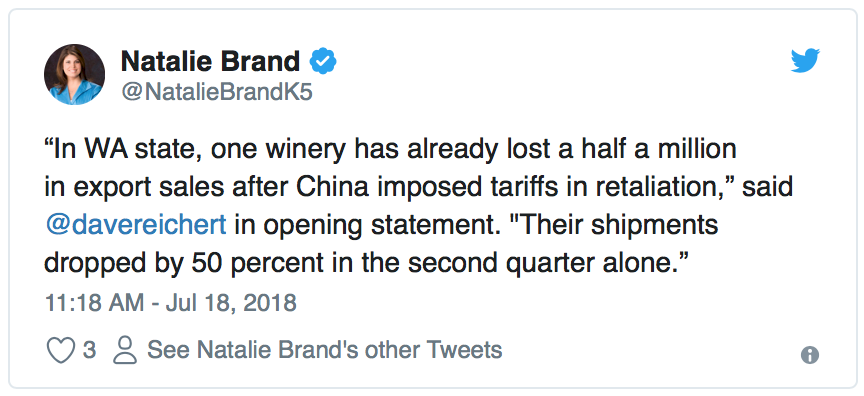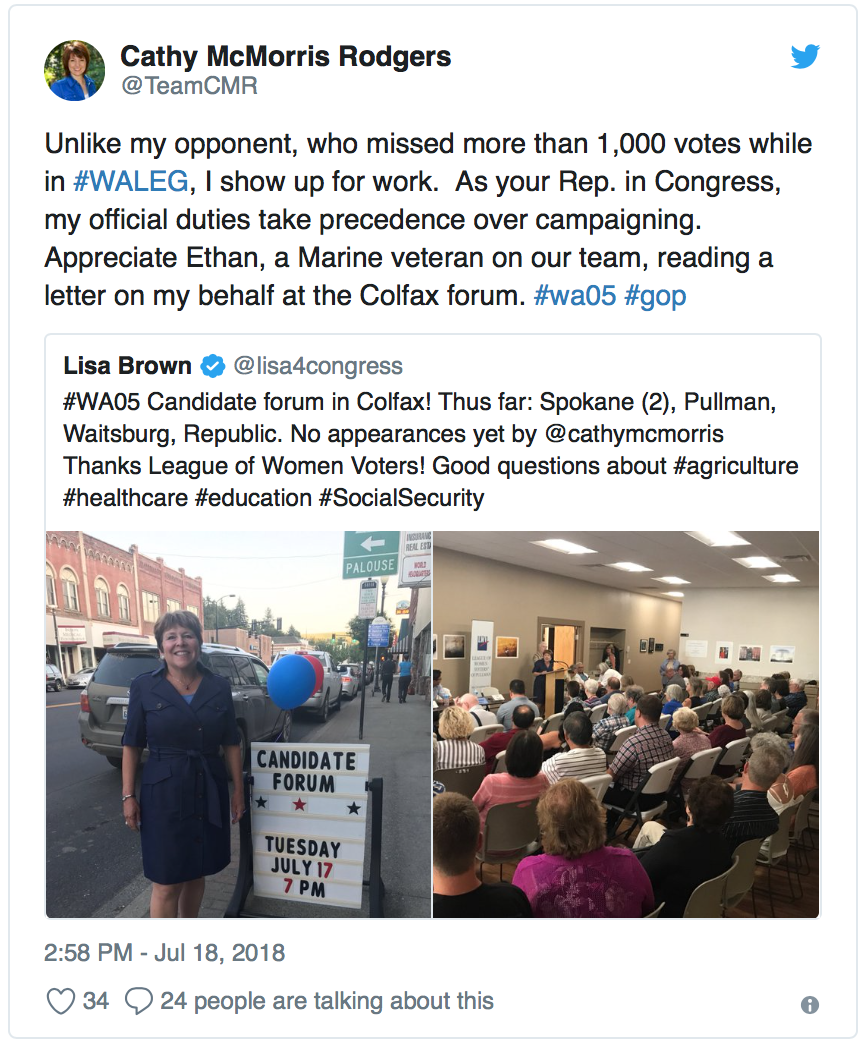Trade wars and food fights, both are wasteful

Happening in Olympia
In a 5-1 decision, the state Energy Facility and Site Evaluation Council voted to allow a huge new solar project in Kittitas County. The solar panels would cover more than 200 acres of pristine farmland to generate only about 25 megawatts of power – compared to small modular nuclear reactors which use less than one acre to generate 1,000 MWe. Governor Inslee now has 60 days to decide on final approval of the Columbia Solar project. (Seattle Times)
The fate of I-1639, which would impose tougher background checks among other restrictions on gun purchases, could be headed back the courts. The campaign behind the initiative failed to include required information on the back of signature petitions that would explain the changes the initiative would make to state law. The Second Amendment Foundation contends the petitions are thus invalid. (The Olympian)
Western Washington
The nation is waiting to see who wins in the fight for Seattle’s future as Kshama Sawant and her not-so-merry band of socialists push to kick Amazon out of Seattle. Those with an iota of geopolitical awareness wonder if Venezuela-lite socialism is the right direction for the city. Sawant said in this interview her battle is partly about “Who has the right to live in our cities?” What a frightening thought, Sawant being left in charge of that question. (The Ringer)
Partly to skewer Seattle’s aborted jobs tax, the Pierce County Council unanimously passed a new incentive to attract more business and increase the number of jobs in unincorporated areas. The Family-Wage Jobs Credit Program gives businesses a one-time rebate of $275 per job created if it’s a new, permanent family-wage job with a salary of $52,197 or more. (My Northwest)
Eastern Washington
As the most trade dependent state in the union, it’s no surprise Washington businesses are being hurt by a growing trade war. Agriculture is taking the brunt of the pain, as other countries levy tit-for-tat retaliatory tariffs. Last year 60 million pounds of cherries were shipped to China alone. Those gains are threatened under the trade war, as now cherry farmers are looking at a 50 percent total tariff rate. “At the end of the day, our growers are shouldering the decrease in price from a market that has traditionally paid a premium for our highest quality fruit,” said B.J. Thurlby, president of Northwest Cherry Growers. (Yakima Herald-Republic)
Notable Tweets
Like what you read?
Do you like The Morning Briefing? Forward this to a friend! It helps us grow our community and serve you better.
If you feel we missed something that should be covered, email us at [email protected].
If you don’t want to receive this email each morning, click here to opt-out of The Morning Briefing.


